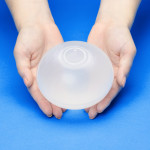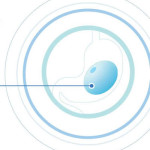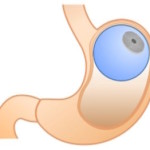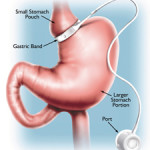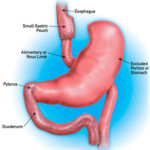Home | Endoscopic Weight Loss Procedures | Intragastric Balloon (IGB) | Primary Obesity Surgery Endoluminal
PRIMARY OBESITY SURGERY ENDOLUMINAL (POSE)
What is POSE?
Primary Obesity Surgery Endoluminal, or POSE procedure, is an endoscopic incisions weight loss procedure that reduces the size of the stomach and helps to diminish hunger cravings. This is primarily designed for patients who want to lose between 25 and 60 or 70 pounds, rather than standard bariatric surgery patients who need to lose 100 pounds or more.
The procedure is performed entirely through the mouth and does not require any external cuts into the body. It is generally an outpatient procedure (about 1 hour), with most patients making a quick return to normal activities (only a few days to a week, depending on the individual.)
POSE procedure may be an ideal solution for people with excess weight who have not had success with diet and exercise and who do not qualify or do not want to undergo a more extensive type of bariatric surgery.
How does POSE works?
POSE is a type of weight loss procedure that restricts eating and reduces hunger by reducing the size and capacity of the stomach by folding and anchoring the stomach tissue.
The multiple folds of stomach tissue created by the POSE procedure effectively reduce the size and capacity of the stomach to limit food intake and diminish hunger cravings.
How is POSE procedure carried out?
The POSE procedure is performed using endoscopic “through the mouth” techniques on an outpatient basis under general anaesthesia and the procedure takes at least 30 to 45 minutes. Doctors use the Incisionless Operating Platform (IOP), a specialised set of endoscopic surgery tools and an endoscope (flexible tube with a small camera on the end) to visualise the stomach. The IOP and endoscope are passed through the mouth and into the stomach.
Once in the stomach, the IOP tools are used to grasp, fold, and fasten together sections of stomach tissue. The POSE procedure involves making multiple stomach folds and securing them with expandable suture anchors. The suturing technology was designed by USGI Medical researchers as a durable option for anchoring tissue in the stomach and GI tract.
What is the recovery after POSE procedure?
The majority of POSE patients are able to leave the hospital the same day that the procedure is carried out. Patients who have travelled from out of town for the procedure can generally fly home the next day.
What are the advantages / Benefits of the POSE procedure?
- Performed endoscopically (via the mouth)
- No cuts or incisions through the abdomen to reach the stomach
- Quick procedure and Speeds healing time
- Minimises surgical pain and discomfort
- Leaves no visible scars
- Maybe reversible, if necessary
It does not involve any cutting, removal, or rerouting of either the stomach or intestines as with Laparoscopic gastric bypass surgery or Laparoscopic sleeve gastrectomy and does not involve placing a medical implant into the body or need adjustments as with laparoscopic adjustable gastric banding
Is POSE Procedure for you? You may be a candidate according to the below criteria.
- BMI of 30 to 40; who have less than 100 pounds of excess weight to lose
- Had serious non-surgical weight loss attempts and was unsuccessful
- Patients who are willing and is motivated to make significant lifestyle changes in diet and exercise
How does POSE help with weight loss?
- Controls the amount of food that can be eaten at any one time
- Diminishing hunger sensations
- Patients feel satisfied with less food
- Feel less hunger between meals
- Combined with dietary and lifestyle modifications, The POSE procedure is a surgical alternative that can help patients achieve meaningful weight loss.
What is the diet plan after POSE Procedure?
- First few days are limited to liquids, such as water, juice, milk, and broth.
- Normal foods will then be able to be gradually added back into the diet over a short period of time.
DHA recommends restricting Primary Obesity Surgery Endoluminal (POSE) due to various reason. The facility, which decides to perform any of these procedures, should apply for a special approval from HRD; a separate consent form shall be obtained from the patient with special empathy on the nature, risks and outcomes of the procedure. The physician shall inform the patient that the selected procedure is new/investigational in nature and such information has to be mentioned in the consent form.
Home | Endoscopic Weight Loss Procedures | Intragastric Balloon (IGB) | Primary Obesity Surgery Endoluminal

